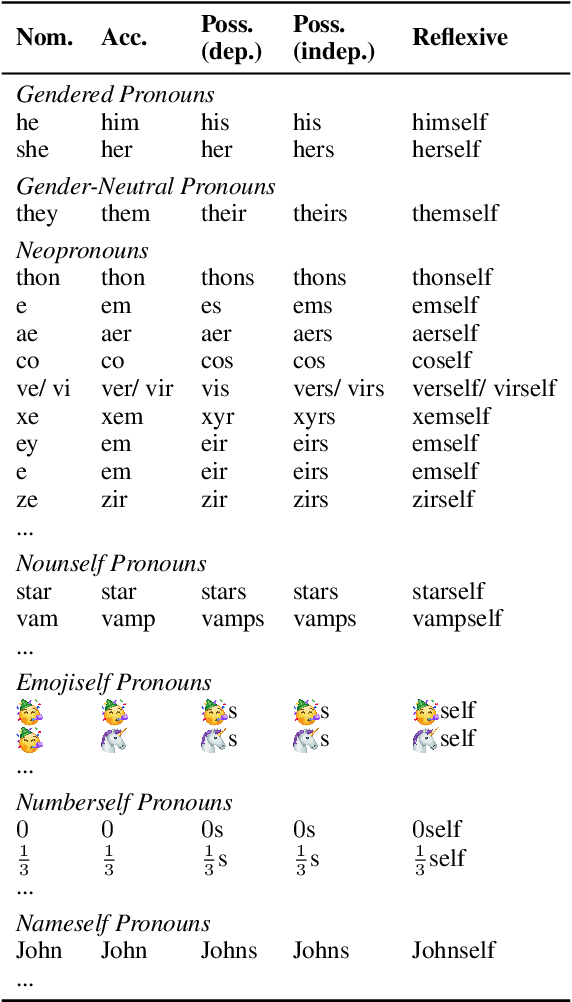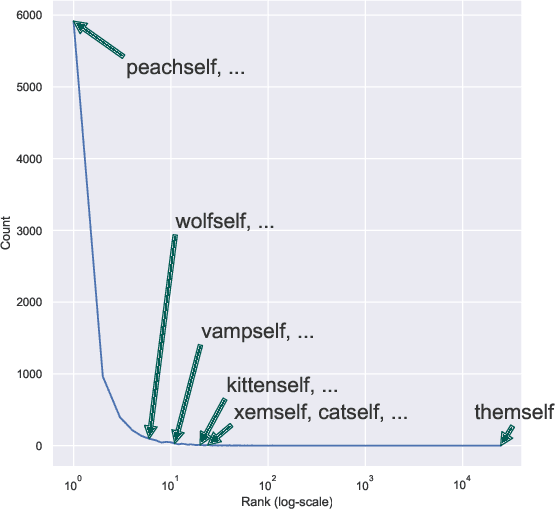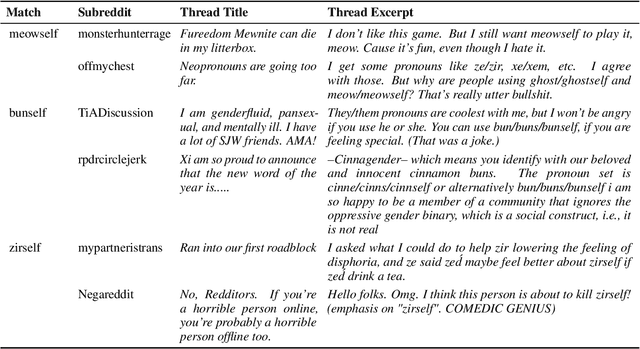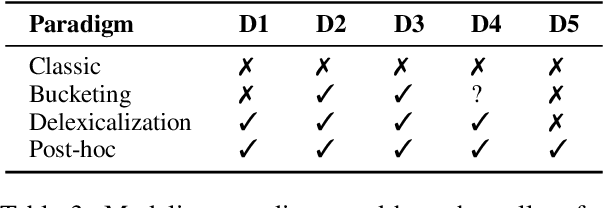Welcome to the Modern World of Pronouns: Identity-Inclusive Natural Language Processing beyond Gender
Paper and Code
Feb 24, 2022



The world of pronouns is changing. From a closed class of words with few members to a much more open set of terms to reflect identities. However, Natural Language Processing (NLP) is barely reflecting this linguistic shift, even though recent work outlined the harms of gender-exclusive language technology. Particularly problematic is the current modeling 3rd person pronouns, as it largely ignores various phenomena like neopronouns, i.e., pronoun sets that are novel and not (yet) widely established. This omission contributes to the discrimination of marginalized and underrepresented groups, e.g., non-binary individuals. However, other identity-expression phenomena beyond gender are also ignored by current NLP technology. In this paper, we provide an overview of 3rd person pronoun issues for NLP. Based on our observations and ethical considerations, we define a series of desiderata for modeling pronouns in language technology. We evaluate existing and novel modeling approaches w.r.t. these desiderata qualitatively, and quantify the impact of a more discrimination-free approach on established benchmark data.
 Add to Chrome
Add to Chrome Add to Firefox
Add to Firefox Add to Edge
Add to Edge